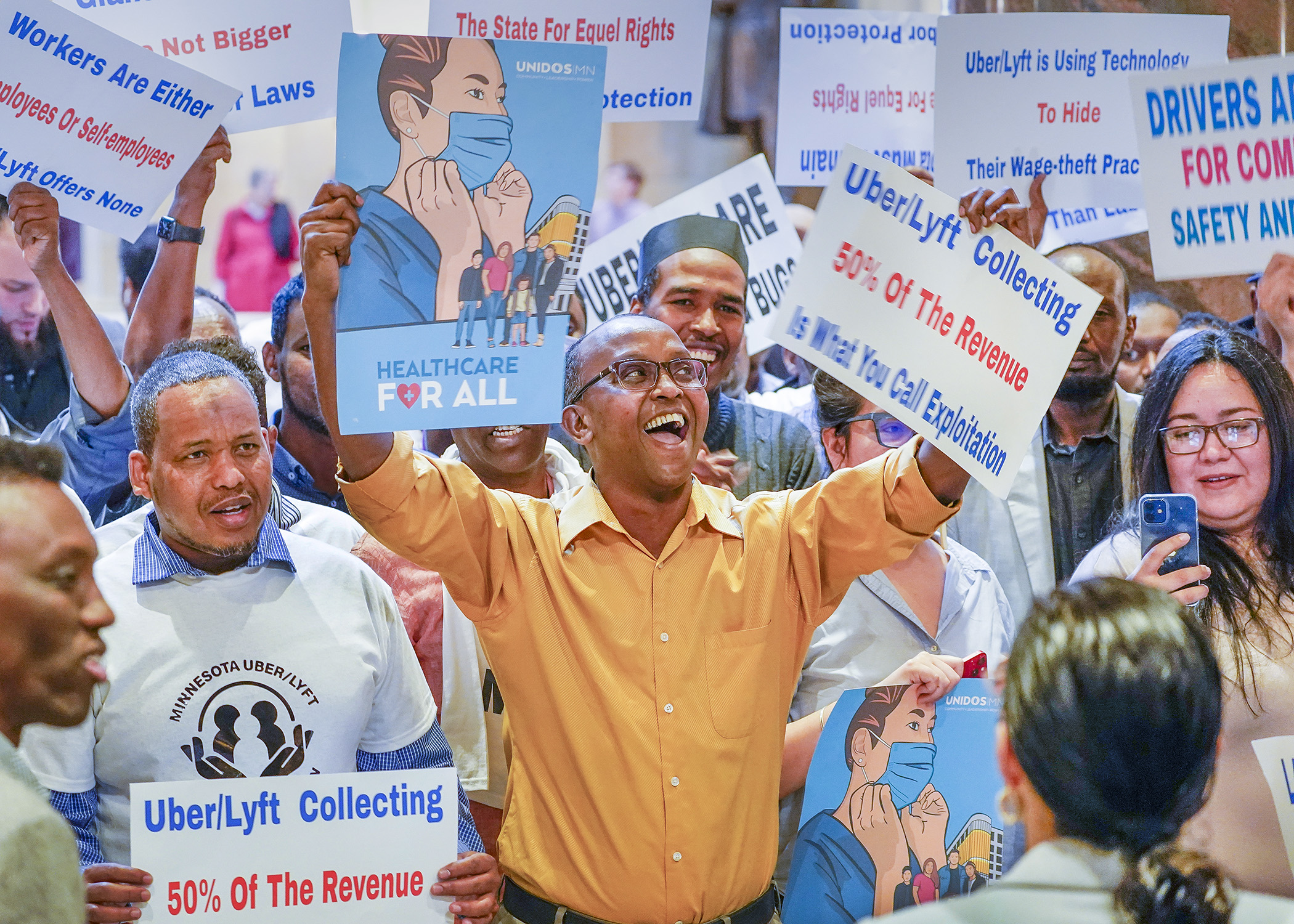House tables proposed regulations of Uber and Lyft after evening debate

Uber and Lyft have supplanted taxis over the last decade. The convenience and reliability offered by rideshare apps has made them the preferred choice of many Minnesotans every day.
But as these apps have gained in popularity, drivers claim their wages and working conditions have slowly deteriorated.
“[Drivers have told me] horror stories about how unsafe it is to drive Uber and Lyft. They talked about how little they got paid,” said Rep. Hodan Hassan (DFL-Mpls). “All they’re trying to do is to work in an environment that’s safe, that they’re able to take care of their families.”
She sponsors HF2369, which aims to address these longstanding concerns by instituting a novel regulatory regime of rideshare companies.
The House debated the bill for several hours Wednesday evening before laying it on the table.
House Majority Leader Jamie Long (DFL-Mpls) said the measure is expected to be taken up again sometime this week. If passed, it would be sent to the Senate.
The version of the bill under debate on the floor looks very different from what was approved by the House Labor and Industry Finance and Policy Committee earlier in the legislative session.
In its current form, the bill would primarily affect driver pay.
It would mandate a minimum compensation rate of $1.45 per mile for trips starting within the seven-county metropolitan area and $1.25 per mile for trips starting outside of the metro. The bill also calls for a pay floor of 34-cents per minute while transporting a passenger, regardless of geography.
These minimum wage guarantees would be indexed to inflation, with annual adjustments being made every July 1.
The deactivation process currently utilized by rideshare companies, which drivers have criticized as opaque and one-sided, would also be greatly altered. Drivers would be granted the right to appeal a deactivation, providing an avenue to possibly reactivate their account on a rideshare app.
Other aspects of the bill would empower a local unit of government to revoke a rideshare company’s operational license and affirm a driver’s right to sue for alleged violations of the new labor standards.
Notably, a previously proposed driver resource center — intended to assist in implementing these regulations and funded with a 25-cent surcharge on every rideshare trip — has been excised from the bill’s language.
Also gone is a provision that would have obligated a rideshare company to maintain an insurance policy on a driver’s behalf to cover medical expenses and lost wages when suffering an injury on the job.
Many Republicans oppose the bill and nearly 30 potential amendments were posted as debate began.
A number of objections center around public safety concerns, with language that would require rideshare companies permanently bar drivers who have been convicted of various serious crimes from their apps.
Eight such amendments were adopted prior to adjournment.
Related Articles
Search Session Daily
Advanced Search OptionsPriority Dailies
Speaker Emerita Melissa Hortman, husband killed in attack
By HPIS Staff House Speaker Emerita Melissa Hortman (DFL-Brooklyn Park) and her husband, Mark, were fatally shot in their home early Saturday morning.
Gov. Tim Walz announced the news dur...
House Speaker Emerita Melissa Hortman (DFL-Brooklyn Park) and her husband, Mark, were fatally shot in their home early Saturday morning.
Gov. Tim Walz announced the news dur...
Lawmakers deliver budget bills to governor's desk in one-day special session
By Mike Cook About that talk of needing all 21 hours left in a legislative day to complete a special session?
House members were more than up to the challenge Monday. Beginning at 10 a.m...
About that talk of needing all 21 hours left in a legislative day to complete a special session?
House members were more than up to the challenge Monday. Beginning at 10 a.m...